Bassador Dog Breed Information
The Bassador is a unique crossbreed that brings together the best of the Basset Hound and the Labrador Retriever. These dogs come in various colors and patterns and have a thick coat that sheds quite a bit.
They are generally friendly and outgoing, but their behavior can have a strong hunting instinct from their ancestry. Training this Bassador dog breed is critical, especially if they are adopted from a shelter or rescue and will be around other animals.
Health-wise, you’ll want to watch out for issues like hip dysplasia, spinal problems, eye conditions, and bloat. Regular check-ups with a vet and mindful care are crucial for the longevity of a Bassador, especially if you’re adopting a dog from a shelter or rescue group.
If you’re considering a Bassador, ensure you can give them plenty of exercise and a nutritious diet to keep them happy and healthy.
Key Takeaways
• Bassador dogs blend Basset Hound and Labrador traits.
• Training curbs their innate hunting instincts.
• Consistent vet visits prevent common health issues.
A Bassador is a mixed breed with varied coats and colors. These friendly dogs require training to manage their strong prey drive. To ensure their well-being, monitor for conditions like hip dysplasia and provide regular veterinary care. Keep them active and well-fed for optimal health.
Quick Facts
The Bassador, a mix of Basset Hound and Labrador Retriever, usually weighs 45 to 70 pounds and stands 13 to 20 inches tall at the shoulder. This hybrid breed is known for its robust and mid-sized build and comes with a short, dense coat that can appear in various colors and patterns.
Bassadors tend to shed, so it’s necessary to groom them regularly to keep their coat clean and reduce odor. These dogs are cherished for their friendly and loyal temperament, which makes them excellent pets. Their friendly nature is often attributed to the Labrador side of their lineage.
Bassador Pictures
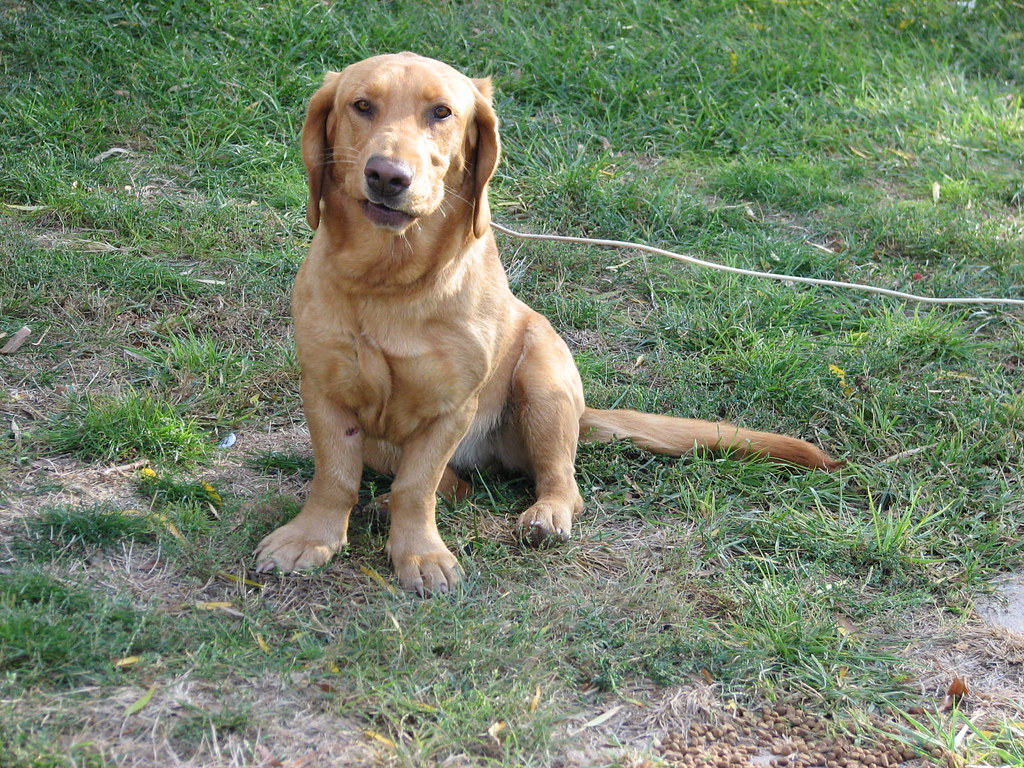
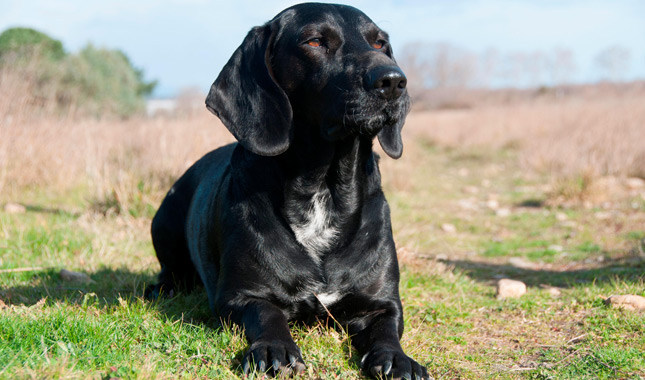

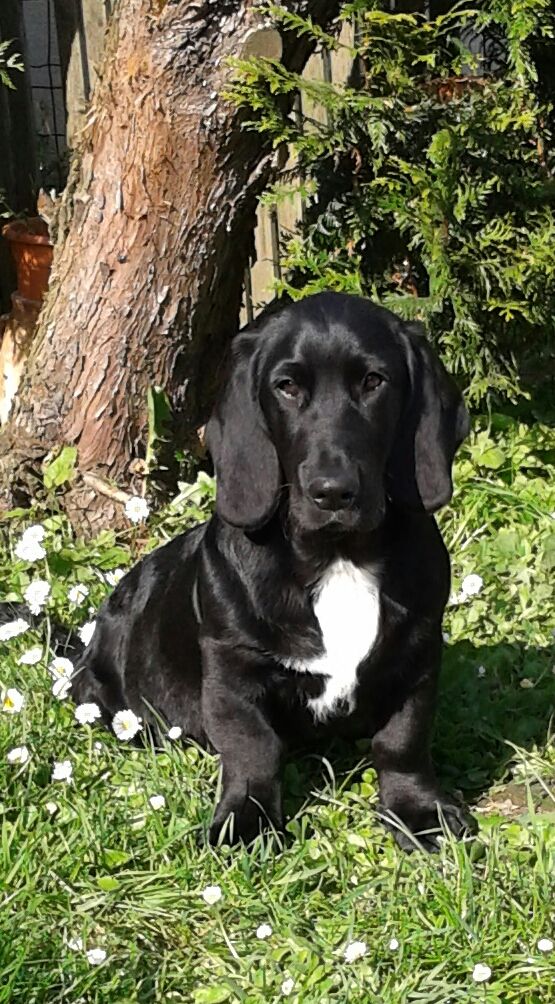
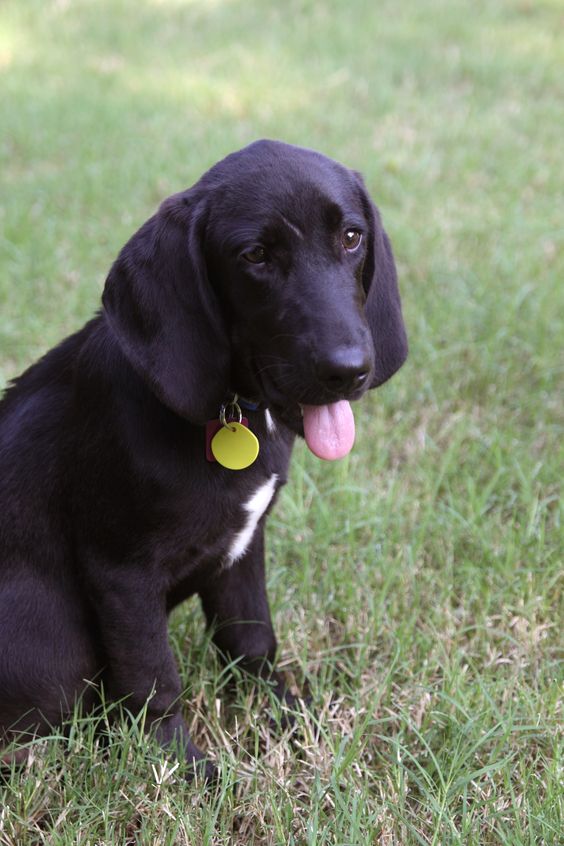
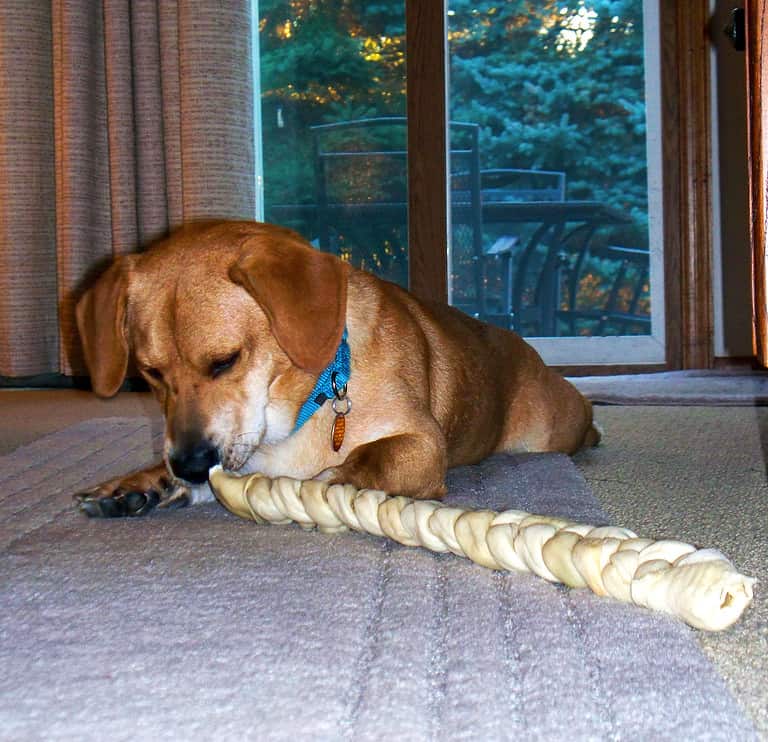
Overview
A Bassador is a charming mix of a Basset Hound and a Labrador Retriever, known for being a loyal and adaptable pet.
This mixed breed combines the friendly dispositions of its parents, making it an ideal choice for those looking for a well-balanced dog that fits into family life with a distinct look.
They come in various coat colors and patterns and can vary significantly in weight.
Although Bassador dogs are often healthy, they can inherit certain conditions from their parent breeds, so owners must stay proactive about their pet’s health with regular vet check-ups to maintain their well-being.
Key Traits
The Bassador, a mix of the Basset Hound and Labrador Retriever, showcases an interesting blend of characteristics from both breeds. This dog typically shows a balanced energy level – they’re not as hyper as Labradors can be, but they’re not as laid-back as Basset Hounds. They’re known to be friendly with kids, inheriting the amiable Labrador disposition and the Basset Hound’s calmness. Families with other pets must manage the Bassador’s strong instinct to chase due to their high prey drive.
| Trait | Implication for Owners |
|---|---|
| Balanced Energy | Regular walks and playtime needed |
| Child-Friendly | Supervise interactions, usually gentle companions |
| Strong Prey Instinct | Consistent training is crucial; watch around small animals |
| Unpredictable Traits | Be ready for surprises; flexibility in training and care |
Owners should expect to engage in frequent exercise routines with their Bassador to keep them healthy and content. Although these dogs can be gentle companions for children, it’s best to oversee their interactions to ensure safe play. Due to their tendency to chase, consistent and patient training is essential to prevent any issues, especially around smaller pets. Lastly, the Bassador’s mixed genetics means they might show less predictable traits, so owners should be adaptable and ready for a few surprises.
Breed Origin Story
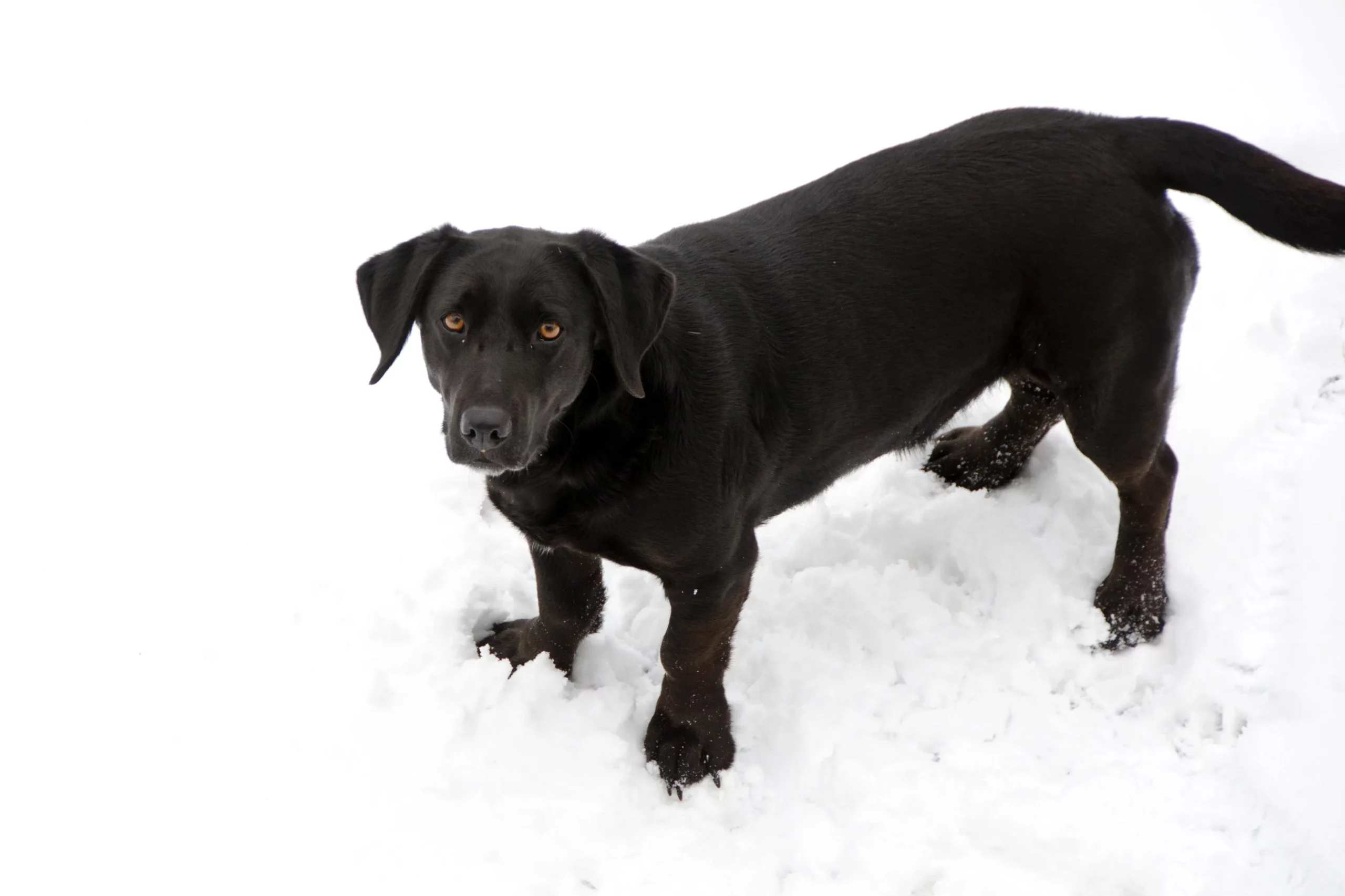
To truly grasp the Bassador’s origins, you must consider its parent breeds, the Basset Hound and the Labrador Retriever. Their long histories shape the Bassador’s personality and physical traits.
A hot topic is the concept of ‘hybrid vigor’—the idea that crossbred dogs may inherit the best traits from their parents. Each Bassador is a unique blend of its ancestors’ genes, leading to various appearances and temperaments.
These aspects are crucial to understanding the Bassador’s place in dog breeding and genetics history.
Parent Breeds History
Basset Hounds have a rich history that begins in France. They are known for their exceptional sense of smell and skill in navigating through dense vegetation during hunts. On the other side of the Atlantic, Labrador Retrievers from Newfoundland, Canada, became popular in Britain due to their retrieving abilities and friendly demeanor.
Initially, Basset Hounds were developed to hunt small animals. Their low height gave them an advantage in thick brush. Labrador Retrievers were first used by fishermen for retrieving fishing gear and lost catch. Later, British breeders refined them for hunting purposes.
Over time, both breeds have transitioned from their working roles to becoming cherished pets. The Bassador, a mix of these breeds, combines the best of both, offering a distinctive blend of skills and traits for dog lovers.
Hybrid Vigor Debate
The crossbreeding of Basset Hounds and Labrador Retrievers has given rise to the Bassador breed, stirring discussions on the potential health benefits of mixed breed dogs. Supporters of the mix claim that the Bassador could have better health and less risk for genetic diseases than their purebred counterparts due to a broader gene pool.
On the other hand, some experts warn that these health advantages are not a certainty. They point out that without selective breeding, a Bassador might still inherit health issues from both parent breeds. The health and traits of these dogs largely depend on the variety and integrity of their genetic heritage.
Genetic Traits Inheritance
The Bassador, a mix between Basset Hounds and Labrador Retrievers, shows various genetic traits. These dogs inherit their parent breeds’ physical features, behaviors, and health risks.
Because of the diverse genes of the Basset Hound and the Labrador Retriever, Bassador puppies might look and act quite differently from each other. Even though mixing breeds can sometimes lead to healthier dogs, known as hybrid vigor, Bassadors can still inherit common health problems from Basset Hounds and Labradors.
To understand what a Bassador might be like, it’s helpful to know the genetic risks and traits of both Basset Hounds and Labrador Retrievers.
Physical Dimensions
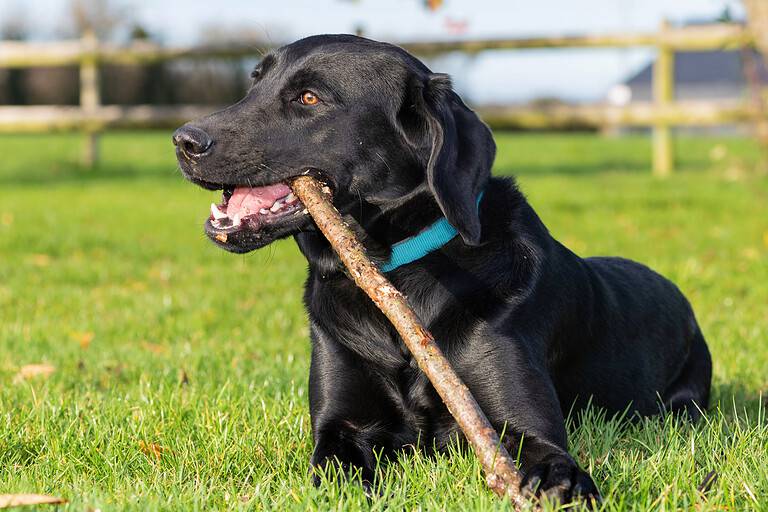
The Bassador is a unique breed that stands out due to its physical build, which shows the traits of its mixed origins and significantly impacts what activities it’s suitable for and where it can live comfortably. When looking at a Bassador, you should pay attention to:
- The breed usually falls into the medium to large category based on height and weight.
- Features like a broad head and a robust body point to the Bassador’s muscular build and stamina.
- Understanding how a Bassador grows and matures is helpful for owners to anticipate the size their pet will reach as it ages.
Knowing these aspects helps make informed decisions on whether a Bassador is the right fit for your lifestyle and home.
Height and Weight
Bassadors stand between 13 to 20 inches tall and tip the scales at 45 to 70 pounds, placing them in the medium to large category for dogs. The variety in size and weight is because Bassadors are a newer breed without strict standards.
For those thinking about welcoming a Bassador into their home, it’s essential to consider how much space and exercise these dogs need. Keeping an eye on their diet and getting enough physical activity is crucial to preventing weight issues and maintaining their health.
These friendly dogs are pretty adaptable and can make great companions.
Body Shape Characteristics
Bassadors are known for their distinctive body shape, characterized by a broad, rounded chest and short, solid legs. This physical appearance is inherited from their Basset Hound and Labrador Retriever ancestors, with the former contributing to the low-slung stature and the latter adding a more muscular build.
Such a mix gives the Bassador a look of durability and stamina, but it also makes them prone to joint issues due to their unique structure.
Caring for a Bassador’s coat is relatively straightforward thanks to their short fur, but routine brushing is still needed to keep shedding under control. Their long, floppy ears, a trait of the Basset Hound, require regular cleaning to avoid infections resulting from trapped moisture and insufficient air circulation.
Growth Patterns
Monitoring the growth of Bassadors is essential. Their unique build, characterized by a broad chest and short legs, means their growth from puppies to adult dogs needs close attention. These dogs, which are of medium to large size, have specific growth needs that can help prevent health issues like obesity—a real risk due to their tendency to put on weight quickly.
Managing their diet and exercise is significantly vital since their energy levels fluctuate with age. A well-planned mix of good nutrition and regular physical activity is the secret to their health.
Scheduling consistent vet visits is a smart move to monitor a Bassador’s size and health. It helps ensure they grow correctly and stay within a healthy weight range. If necessary, the vet can adjust their care plan to keep them on a steady growth path and ensure their overall well-being.
Coat Length Variation
Bassador dogs come in various coat lengths due to their Basset Hound and Labrador Retriever heritage. If a Bassador has a short coat like a typical Labrador Retriever, it won’t need too much grooming. But you’ll still need to brush it regularly to remove loose hair and reduce shedding.
On the other hand, a Bassador with a longer coat, which could be inherited from its Basset Hound relatives, will require more thorough grooming to stay clean and comfortable.
No matter the coat type, all Bassadors will be healthier and happier with consistent grooming, which helps to get rid of dead skin and improves blood flow.
Size Comparison Breeds
When you compare the sizes, Bassadors stand out as more significant than Basset Hounds but are not as big or substantial as Labrador Retrievers. They’re considered medium-sized dogs, showing traits from both parent breeds.
A Bassador’s height is typically between 40-50cm, thanks to the short legs of the Basset Hound, while the Labrador’s genes can bring their weight up to about 70 pounds. These dogs display a wide range in size, which is natural for mixed breeds.
Those looking to get a Bassador should expect a sturdy and muscular pet like a Basset Hound, yet with the athletic frame of a Labrador, making for a well-rounded medium-sized dog companion.
Temperament Traits
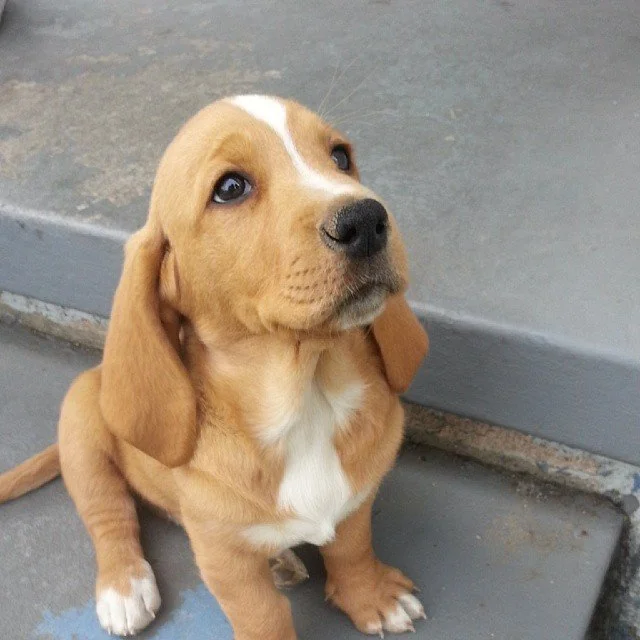
Understanding the personality traits of a Bassador is vital for anyone looking to welcome one into their home. These dogs are known for their friendly and outgoing nature, which makes them great for families. They love being around people and easily make friends with humans and other pets.
However, they have a strong instinct to chase, inherited from their hunting ancestors. This means owners should be proactive in training and socializing their Bassador. They also have an independent side that may come off as stubbornness, requiring a firm but gentle training approach. Being patient and consistent when teaching them new commands or rules is essential.
Friendly and Sociable
Bassador dogs are known for their friendly nature and love of social interaction. They are a mix between Basset Hounds and Labrador Retrievers, inheriting the best qualities from both breeds, which makes them perfect companions for families.
They easily adjust to social settings, showing they’re great with kids and other animals. These dogs are not just open to meeting new people; they offer a genuine warmth typical of their kind.
The Lab’s sociable instincts and the Basset’s laid-back attitude create a well-rounded canine friend.
High Prey Drive
Bassador dogs are known for their friendly nature but also have a strong instinct to chase due to their hunting heritage. Managing their high prey drive requires dedicated training and careful socialization to prevent them from chasing smaller animals, especially in a home with multiple pets.
Experts recommend specific training methods to curb these instincts and promote harmony among household animals. Slow and consistent socialization is critical to helping Bassadors control their natural chasing urges, ensuring they can live peacefully with other pets.
Independent Nature
Bassadors stand out for their self-reliant nature, which allows them to handle solitude well. They don’t often suffer from separation anxiety and are quite happy spending time on their own.
That confidence makes them less needy than other dogs, but it can also mean they’re stubborn sometimes. Training a Bassador takes patience and consistency because of this trait.
Experienced dog owners might appreciate a Bassador’s self-sufficiency, which means the dog can integrate well into a busy family life without losing its sense of self.
Potential Stubbornness
Bassadors can be pretty independent but may also show a stubborn streak that makes training challenging. This trait likely comes from their Basset Hound lineage, known for its strong-willed nature.
To train a Bassador effectively, owners need consistency and positive rewards. Understanding what drives their behavior, like a strong instinct to chase or a need for autonomy, can lead to more successful training sessions. Experienced trainers often suggest patience, as pushing too hard can make a Bassador’s stubbornness more pronounced.
Owners need to realize that while Bassadors can learn new commands, their education might progress slower due to their disposition.
Good With Children
Bassadore dogs are known for their independent nature and can sometimes be stubborn. This combination of traits means they can stay calm even when kids are bustling and noisy. Bassadors often have a relaxed attitude that helps them deal with the unpredictable antics of young ones. Their self-sufficient streak suggests they won’t get anxious when the family’s routine changes, which is great for active households.
However, their determination means you must be patient and consistent when training them to behave well around children. Despite this challenge, Bassadors are incredibly loyal and often develop solid and protective relationships with their families, making them a fitting choice for homes with kids.
Common Health Conditions
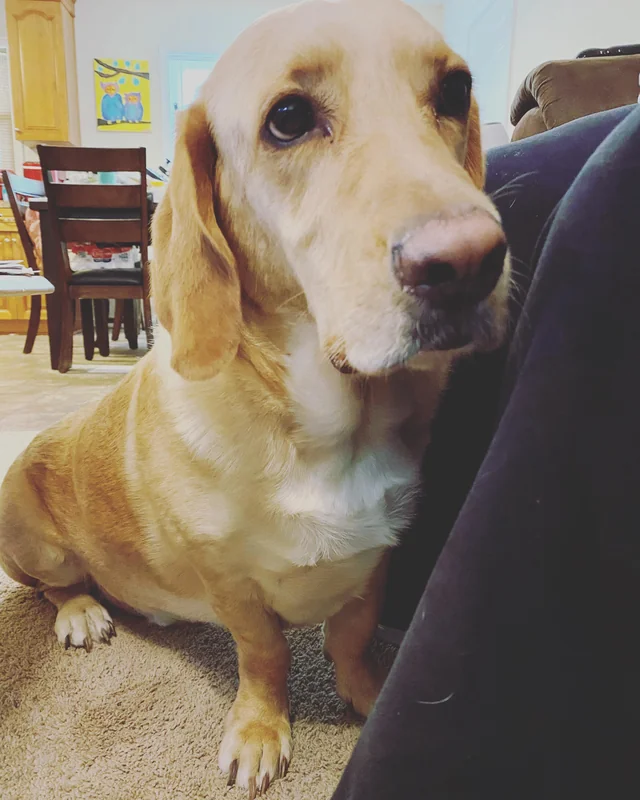
If you’re considering getting a Bassador, knowing about their health issues is essential. Being proactive with their health can lead to a happier life for your pet.
Watch closely for any signs of hip dysplasia or back problems, which are common in the breed, so that you can get treatment early. It’s also vital to keep Bassadors at a healthy weight and make sure they get enough exercise to avoid obesity. Plus, their floppy ears need regular cleaning to prevent ear infections like otitis externa, which are often prone to.
Making these health practices part of your routine will help your Bassador stay fit and happy for years.
Inherited Health Issues
Bassadors often face several genetic health issues, such as hip dysplasia, spinal injuries, eye conditions like glaucoma, and bloat. These issues need close attention and preventive health strategies.
Hip dysplasia is especially problematic because it can cause severe joint pain and hinder movement. Early detection through regular check-ups is vital in managing this progressive ailment effectively.
The floppy ears of Bassadors make them susceptible to ear infections. Keeping their ears clean is vital to avoid these problems. It’s also important to support responsible breeding to reduce the chance of these conditions, ensuring a healthier future for the breed.
Regular vet visits and a specific health care plan are fundamental in caring for a Bassador’s health.
Obesity Management
Bassadors, like many dogs, can inherit health issues that make them prone to weight gain. This makes managing their weight a significant part of their care. These dogs love their food, which can lead to them putting on extra pounds without careful monitoring. Properly measured dry dog food is vital to keeping them at a healthy weight.
They should get just enough to meet their energy needs and not more. It’s wise to be sparing with treats to keep weight issues at bay. Regular vet check-ups are also vital. They can help catch any weight problems early and advise on handling them.
Plus, staying active is just as crucial for a Bassador’s weight as their energy levels. A good exercise routine will help keep them in shape and happy.
Ear Infection Prevention
Shifting focus from weight management, Bassador owners must keep their dogs’ ears clean to prevent otitis externa.
This condition is prevalent in Bassadors due to their unique floppy ears inherited from their Basset Hound and Labrador lineage. These long ears can trap moisture and warmth, creating an ideal environment for growing bacteria and yeast.
Vets often stress the need for regular ear checks and careful cleaning to keep your Bassador’s ears healthy. Consistent ear care can significantly reduce the chances of infection and help maintain your dog’s hearing health.
Essential Care Practices
Taking care of a Bassador involves more than love and affection; it requires a holistic approach to ensure they live a happy and healthy life. To keep your Bassador thriving, consider these essential care practices:
Routine Veterinary Visits
Schedule regular check-ups with your vet to avoid health concerns and keep your Bassador in optimal health. Preventative care is the key to catching issues early.
Grooming and Cleanliness
Regular grooming sessions are vital to keep your Bassador’s coat shiny and to ward off skin problems. It’s not just about looking good; it’s about maintaining good health.
Balanced Diet
Feed your Bassador a well-balanced diet to maintain energy and manage weight effectively. Good nutrition is the foundation of a pet’s overall well-being.
Regular Health Check-Ups
Regular health check-ups are essential for a Bassador’s overall well-being, allowing for prompt identification and treatment of health concerns. These routine exams are critical for spotting breed-specific issues like hip dysplasia and spinal problems, which can seriously affect their comfort and activity.
Regular vet visits are vital to managing a Bassador’s weight, helping to prevent joint issues and low energy levels. Vets can offer advice on diet and exercise that suits the Bassador’s needs, ensuring they lead a whole and happy life.
Grooming and Hygiene
Caring for your Bassador involves regular brushing to keep their thick fur in check and reduce shedding. These dogs, born from Basset Hounds and Labrador Retrievers, have a coat that needs attention to stay healthy. Use a good dry dog shampoo during baths to keep them smelling fresh without irritating their skin.
It’s also vital to clean their facial wrinkles thoroughly to prevent infections.
A well-rounded diet with high-quality dog food promotes a shiny coat and healthy skin. Don’t forget about ear cleaning, clipping their nails, and brushing their teeth daily. These steps are critical to your Bassador’s overall health and happiness.
Nutritional Diet Plan
Proper nutrition is vital to maintaining a Bassador’s health, and a diet carefully calibrated for their needs is critical.
These dogs have robust appetites, so managing their food intake is imperative to avoid excess weight, especially when they’re less active.
When planning their meals, you should consider the dog’s age, current weight, typical activity levels, and any health issues, like hip dysplasia.
A well-rounded diet for a Bassador includes quality sources of protein, carbs, fats, vitamins, and minerals in the right amounts.
To keep their weight and energy levels in check, setting feeding times and serving measured portions is best.
Always watch how your Bassador is doing on their diet and make necessary changes after talking with your vet.
Exercise and Stimulation
Every Bassador needs plenty of exercise and mental challenges to stay healthy and well-behaved. These active dogs are happiest when they have space to run and participate in activities that tire them out physically and mentally.
They have a strong prey drive, so their exercise routine should help control potential weight issues and fulfill their instincts. Regular play and structured exercise can keep your Bassador mentally sharp, prevent them from getting bored, and reduce the chance of destructive behavior.
This helps maintain their health and strengthens the relationship between the dog and the owner.
Training and Socialization
Training and socialization are vital in helping a Bassador become a well-behaved and confident dog. Positive reinforcement, where good behavior is rewarded, strengthens the bond between owner and pet.
Being exposed to different people, animals, and places early on helps these dogs learn to be less wary of strangers and prevents excessive barking. This approach not only helps avoid future behavior problems but also prepares the Bassador to cope well with various situations in daily life.
Dietary Requirements
For a Bassador’s diet, finding the right balance of nutrients that support their active lifestyle and prevent weight gain is essential. Identifying and avoiding ingredients that cause allergies is critical to keep the Bassador healthy and free from food-related issues. Consistent meal times help maintain steady energy levels and good digestive health.
Allergy-Safe Foods for Bassadors
When tailoring a diet for a Bassador, it’s vital to recognize any food allergies. This ensures their meals are nourishing and won’t cause any health problems. A regular feeding schedule helps stabilize their metabolism and supports overall well-being.
Optimal Nutrition Balance
Crafting the proper diet for your Bassador is vital to keeping them healthy and happy. Their meals should include the right mix of proteins, carbohydrates, fats, vitamins, and minerals. This mix should be adjusted based on the dog’s age, weight, and how active they are.
Bassadors are prone to health issues like hip dysplasia and bloat, so their food must support strong bones and a stable digestive system.
High-quality proteins are vital for muscle health, while complex carbohydrates provide long-lasting energy. Fats are essential, too, especially for maintaining a healthy coat.
Since Bassadors can be less active, primarily when they serve as emotional support animals, monitoring how many calories they eat is crucial to avoid obesity.
Always talk to a vet to create a diet perfect for your Bassador, which will help them live a long and energetic life.
Food Allergy Considerations
When planning your Bassador’s meals, food allergies need to be a top priority. Their health must watch for any negative responses to their foods. Bassadors can have allergies to items like beef, dairy, wheat, eggs, chicken, lamb, soy, pork, rabbit, and fish.
When you give your Bassador new food, do it cautiously and watch for any signs of allergies. You might have to try an elimination diet under a vet’s guidance to pinpoint what’s causing issues.
Feeding your Bassador a hypoallergenic diet can help avoid allergic reactions and support their overall health and wellness.
Proper Feeding Schedule
Creating a feeding routine that suits your Bassador’s needs is vital for their health and well-being. Given their mixed heritage from Retrievers and Basset Hounds, Bassador dogs may have different energy levels and a predisposition to gain weight.
It’s necessary to find the right balance in their diet that caters to the hearty appetite they may inherit from Retrievers while being mindful of the weight management issues common to Basset Hounds.
For the best advice on your dog’s nutrition, you should consult a veterinarian to determine the right amount and type of food, helping to prevent any chance of overfeeding.
Sticking to a strict feeding plan and keeping treats to a minimum will go a long way in managing your Bassador’s health, ensuring they maintain a healthy weight and robust vitality.
Bassador Dog Breed Information
What is a Bassador?
The Bassador is a mixed breed dog, a cross between the Basset Hound and the Labrador Retriever. This unique combination results in a wonderfully lovable and loyal pooch that possesses the best traits of both its parent breeds. Bassadors are medium-sized dogs, usually short and stocky, making them an ideal choice for families and individuals seeking an affectionate and active companion.
Origin and Characteristics of the Bassador
The Bassador blend originated from the Basset Hound and the Labrador Retriever, two reputable purebred dogs known for their friendly nature and adaptability. The Bassador inherits the classic droopy ears from the Basset Hound and the intelligent, friendly demeanor from the Labrador. Their coat can vary in length and texture, and they come in a range of colors, including black, brown, and white.
Traits and Temperament of Bassador Dogs
Bassadors are known for their friendly and sociable nature. They make excellent companions for individuals and families alike, and they are particularly good with children due to their gentle and patient demeanor. These dogs love to be around people and are eager to please, making them an ideal choice for those seeking a loyal and affectionate pet.
Training and Exercise Needs for Bassador Dogs
Due to their smart and trainable nature, Bassadors respond well to positive reinforcement training methods. Regular exercise is essential for this breed to keep them mentally and physically stimulated. They enjoy various activities such as dog sports, walks in the park, and interactive play. When well-exercised and properly trained, Bassadors can thrive both indoors and outdoors.
How to Find a Bassador Puppy
When looking for a Bassador puppy, it’s crucial to choose a responsible breeder or consider adopting from a shelter or rescue group. Responsible breeders ensure the health and well-being of their puppies, while adopting from a shelter provides a loving home for a dog in need.
Choosing a Responsible Bassador Breeder
When seeking a Bassador from a breeder, ask about health testing and certifications, as reputable breeders conduct such tests to ensure their puppies are free from genetic health problems. A good breeder will also be open and transparent about the breed’s potential health issues.
Adopting a Bassador from a Shelter or Rescue
Adopting a Bassador from a shelter or rescue not only provides a home for a dog in need but also offers the opportunity to give a second chance to a wonderful mixed breed dog. Many Bassador dogs are waiting for loving families and individuals in shelters and rescue groups.
Important Health Certifications for Bassador Puppies
When choosing a Bassador puppy, it’s essential to inquire about necessary health certifications and screenings from the breeder. These certifications help ensure that the puppy is healthy and free from common health problems commonly associated with the Bassador breed.
Understanding Bassador Health Problems
Like any breed, Bassadors may be prone to certain health conditions that are inherited from their Basset Hound and Labrador Retriever lineage. These health issues may include joint problems, back issues, and common genetic health concerns.
Common Health Issues in Bassador Dogs
Bassadors may encounter health issues common to both the Basset Hound and the Labrador Retriever, such as joint problems and ear infections. Proper care and regular veterinarian check-ups can help manage and prevent these conditions.
Genetic Health Problems in Bassador Dogs
There are specific genetic health problems that can affect Bassador dogs, and it’s important for breeders and owners to be aware of these potential issues. Responsible breeding practices, health screenings, and open communication about genetic health problems are crucial to mitigating the risk of inherited conditions.
Signs and Symptoms of Health Problems in Bassador Dogs
Understanding the signs and symptoms of common health problems in Bassadors is essential for early detection and intervention. Being aware of any changes in behavior, appetite, or mobility can help address health issues promptly and effectively.
Mixed Breed Considerations for Bassador Dogs
Mixed breed dogs, such as the Bassador, have unique benefits and considerations that potential owners should be aware of. Understanding the advantages and specific needs of mixed-breed dogs can enrich the ownership experience.
Health Benefits of Having a Mixed Breed Dog
Mixed breed dogs often benefit from genetic diversity, potentially reducing the risk of inherited health problems commonly found in purebred dogs. This diversity may contribute to overall better health and vitality in mixed breed dogs like the Bassador.
Activity Level and Exercise Requirements for Mixed Bassador Dogs
Understanding the activity level and exercise requirements of mixed Bassador dogs is important for maintaining their overall well-being. Regular exercise and mental stimulation are crucial for keeping these hybrid dogs happy and healthy.
Shelter or Rescue: A Good Option for Mixed Bassador Dogs
Shelters and rescue organizations often have mixed-breed dogs, including Bassadors, looking for forever homes. Adopting from a sanctuary provides a second chance for a dog in need and offers the opportunity to experience the joys of pet ownership with an excellent mixed-breed companion.
Tips for Responsible Bassador Dog Ownership
Being a responsible owner means understanding the unique needs and considerations of the Bassador breed, ensuring their well-being and happiness throughout their lives.
Choosing a Reputable Breeder for Bassador Dogs
When acquiring a Bassador puppy, it’s essential to choose a reputable breeder who conducts health testing and prioritizes the welfare of the dogs. Open communication with the breeder is key in ensuring a healthy and happy addition to the family.
Importance of Openness about Genetic Health Problems
Understanding the potential genetic health problems in the Bassador breed and being open about these issues is crucial for responsible ownership. This transparency can help breeders, owners, and veterinarians work together to promote the health and well-being of Bassador dogs.
How to Screen for Necessary Health Certifications when Acquiring a Bassador
Before acquiring a Bassador, it’s essential to ensure that the breeder provides necessary health certifications and screenings for the puppies. This helps verify the overall health and genetic well-being of the Bassador, giving peace of mind to the new owners.
